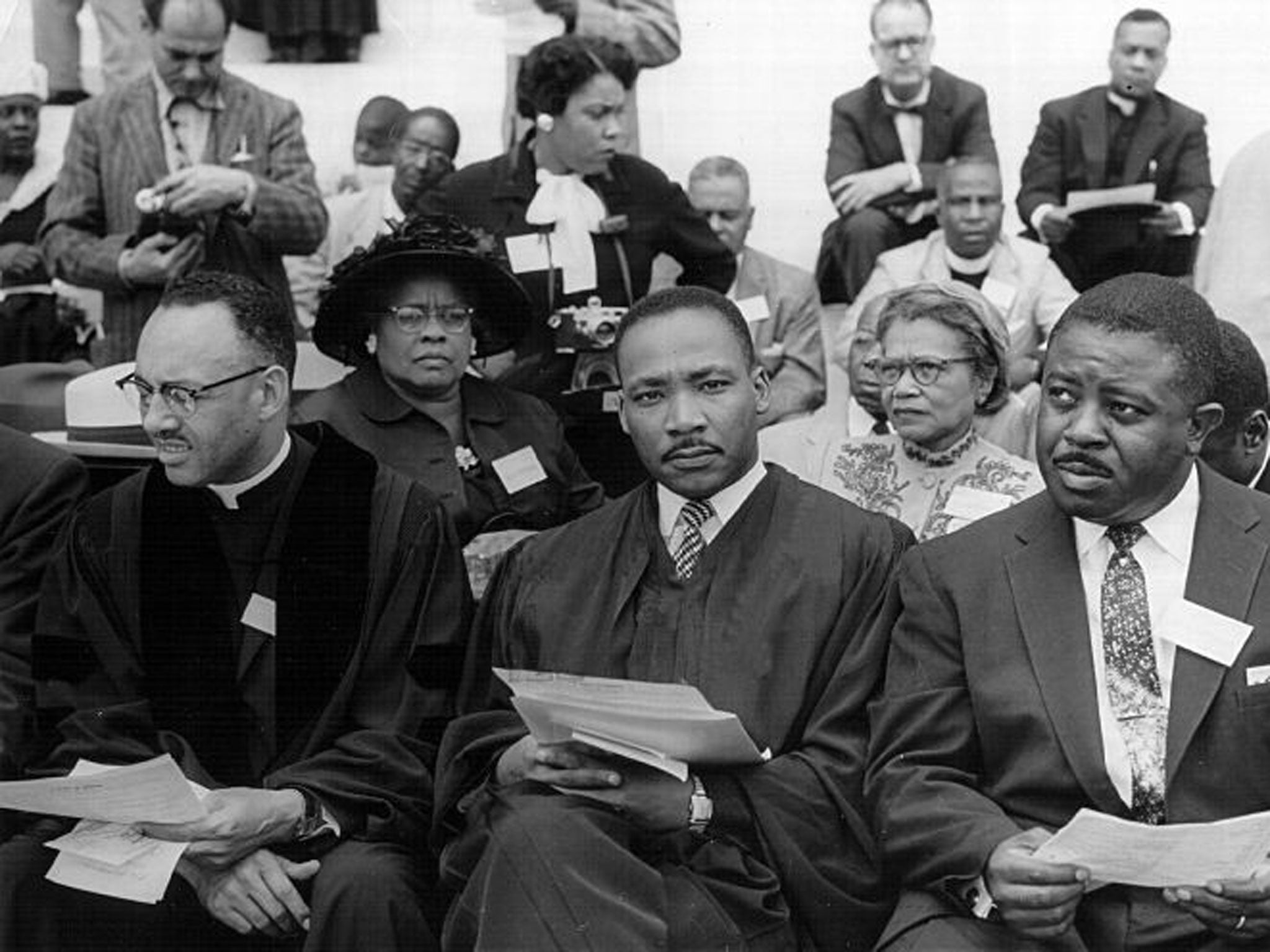1956: The World in Revolt by Simon Hall, book review: Enjoyable, but it has limits
This account of the tumultuous events of 1956 is vivid and fast-moving, but the bigger picture is absent

A European reader just glancing at the red, white and black themed jacket of 1956 could be forgiven for assuming that this was another account of the Hungarian Uprising: inspirational and dispiriting by turns, but material well worked over as Cold War archives have been opened and anniversaries marked. The subtitle, "The world in revolt" – in very small letters – is an attempt to overcome this, but still the scope of the book came, to this reviewer at least, as a delightful surprise.
Simon Hall really does take the global perspective. He opens with the firebombing of the young Rev Martin Luther-King's parish home in Montgomery, Alabama, and the incipient civil rights movement in the United States. Then he takes us to Algeria and the challenge being mounted to French rule, then to Khrushchev's "secret speech" and the contested Soviet Thaw, before returning to the American South, where violence has broken out over desegregation at the University of Alabama.
Any readers who are not already short of breath soon will be. In a book that takes a strictly chronological approach, we are barely a quarter through. As winter turns to spring, we are led on a dash around Central and Eastern Europe where mini-Stalins are quaking in their jackboots as hard-pressed citizens take succour from Khrushchev's not-so-secret speech.
Thousands of miles away, Britain is granting independence to Ghana, with more or less grace, but – back in Europe – desperately withholding it from Cyprus. Archbishop Makarios is bundled off to distant exile on the possibly spurious grounds that he was masterminding the increasingly violent campaign against British rule with a view to uniting Cyprus with Greece.
Still to come are massacres in Algeria, the first stirrings of the rock revolution in the US (Fats Domino, Elvis Presley), Britain's Angry Young Men (John Osborne and all that); racist violence in Texas; and, of course, the two events that most Europeans would probably regard as the staples of 1956: the Suez debacle and the heroic, but doomed, Hungarian Uprising.
The accounts, month by month, are fast-moving and vivid. Hall is a fluent and unobtrusive narrator. He relies on a host of memoirs and secondary sources, but also to a large degree on contemporary journalism. And the reporters of the time deserve to take a bow: those cited here offered much more than the sometimes belittled first draft of history. Their observations provide much of the immediacy and the texture without which history can struggle to come to life.
1956 is enjoyable and informative, but it has limits. What is missing is the sense of a bigger picture or a deeper rationale. Hall seems to sense this, as he makes periodic efforts to provide a connecting thesis. He ends his Prologue: "1956 saw ordinary people, all across the globe, speak out, fill the streets and city squares, risk arrest, take up arms and lose their lives in an attempt to win greater freedoms and build a more just world.... It was an epic contest that would transform the post-war world."
He argues that American opponents of the civil-rights movement saw it in part as a fifth column for Cold War communist attempts at destabilisation. And in his conclusion he says that "many of those who took to the streets or called for change, as well as those who defended the status quo, were aware of the global context in which they were acting. Indeed some sensed that they were part of a larger interconnected story".
Maybe. But maybe, too, Hall is looking for links that do not exist except in the broadest of senses, and maybe this shortcoming has more to do with the concept than the author. In the end, the value of the book lies not in any new insights or interpretations, but in its compilation and dissection of one particularly action-packed year – a year that for many readers probably lies right on the cusp of living memory.
Faber & Faber, £20. Order at £17 inc. p&p from the Independent Bookshop
Subscribe to Independent Premium to bookmark this article
Want to bookmark your favourite articles and stories to read or reference later? Start your Independent Premium subscription today.

Join our commenting forum
Join thought-provoking conversations, follow other Independent readers and see their replies